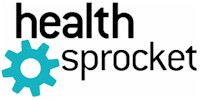Fact Based List:
Becker's ASC Review: 50 Things to Know About the Proposed ACO Regulations
Submitted by Anonymous on Mon, 04/04/2011 - 19:23
- ACO Participants cannot participate in other Medicare shared savings programs
- An ACO may include the following types of providers: ACO professionals, Networks of individuals practices, Partnership/joint venture, Hospital employing ACO professionals, others as determined by HHS
- The regulations provide for a once-a-year start date of Jan. 1
- ACO agreements will be for three years with one-year performance measurement periods
- Medicare fee-for-service beneficiaries will be retroactively assigned to ACOs based on primary care utilization during a performance year
- Beneficiaries will not be assigned to more than one ACO
- Beneficiaries will not receive advance notice of their ACO assignment
- CMS expects 5 million Medicare beneficiaries to receive care from providers participating in a shared savings program
- An ACO must have at least 5,000 beneficiaries
- The board of an ACO must include some Medicare beneficiaries
- The ACO board must include representation from all ACO participants
- No more than 25 percent of board seats can be held by non-ACO participants such as entrepreneurial companies
- The proposed regulations do not require an ACO to become a separate legal entity with a separate Tax Identification Number
- The ACO can enter into a one-sided or two-sided shared savings agreement
- Cost targets, from which savings will be calculated, will be based on retrospective review of aggregate beneficiary-level data for the assigned population
- CMS will set spending benchmarks based on three years of data
- Generally there is no savings shared or costs to be borne unless savings are at least 2 percent above or below the benchmark
- The ACO entity is responsible for distributing savings to participating entities
- ACOs will be subject to a withhold of shared savings to offset possible future losses
- To be eligible to receive shared savings, the ACO must also meet certain quality standards
- An ACO must develop a process to promote evidence-based medicine, patient engagement and coordination of care
- ACOs must have a patient survey tool in place
- ACOs must have a process for evaluation the health needs of the population it serves
- ACOs must have systems to identify high risk beneficiaries and develop individual care plans for target populations
- An ACO must report and maintain a database of all ACO participants and their National Provider Identifiers
- ACOs must have a compliance plan and conflicts of interest policies and means to screen ACO participants
- ACOs must get approval for any changes in ACO participants (i.e., providers) during the three-year contract period
- Where an ACO's structure or participants changes during a term, CMS has five different ways it may respond
- Primary care providers may only participate in one ACO
- Physicians eligible for primary care provider status include internal medicine, general practice, family practice and geriatric medicine specialists
- At least 50 percent of an ACO's primary care physicians must be meaningful EHR users as defined by the HITECH Act and subsequent Medicare regulations
- Each ACO will have significant public reporting requirements in a standardized format
- ACOs must have a data-use agreement with CMS
- CMS will share aggregate population data regarding the ACO's population several times per year
- CMS may monitor to ensure they are not avoiding at-risk beneficiaries or distributing unapproved marketing materials in addition to a whole range of other issues
- ACOs must agree to be open wholly to audits
- The regulations set forth 16 grounds for termination of an ACO's shared savings agreement with CMS
- There are several concepts which are not subject to appeal by an ACO if it is terminated from the program by CMS
- CMS can change the program during a contract term, but can't change the rules regarding the eligibility requirements of an ACO, calculation of the shared savings rate and beneficiary assignment
- CMS and the OIG have proposed waivers with regard to Civil Monetary Penalty, Antikickback and Stark laws solely as to relationships wholly related to an ACO
- Preliminary guidance from IRS available
- Preliminary guidance from antitrust agencies available
- The core concepts of the ACO program are to achieve better care for individuals, better health for populations and lower growth for Medicare expenditures
- Comments on the proposed rule will be accepted for 60 days after the proposed rule is published in the Federal Register (expected April 7, 2011, so until June 6, 2011)
- The ACO program is scheduled to go into effect on Jan. 1, 2012
- Will require massive bureaucracy
- Regulations are idealistic
- Regulations limit business involvement
- Regulations require beneficiary representation in ACO governance
- Regulations favor PCPs
Source: Becker's ASC Review
Source URL: http://www.beckersasc.com/news-analysis/50-things-to-know-ab...
| List Ratings: |
Lists You Might Also Be Interested In
- Theresa Hush: 5 Behavioral Health Strategies for ACOs and Medical Group Models
- CMS: Consensus Core Set: ACO and PCMH / Primary Care Measures
- The 32 organizations participating in the Medicare Pioneer ACO Model
- 2015 States with an Active Medicaid ACO Program
- Three Alternative Value-Based Reimbursement Models That Can Put Hospitals on a Path to ACOs
Login or register to post comments

